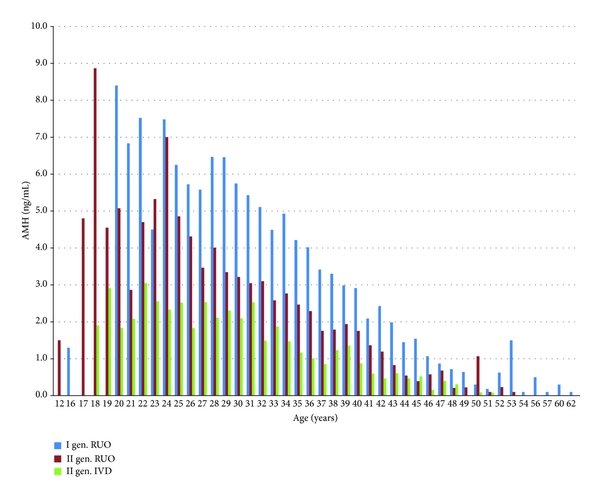The New York Times covering this area now: Is Delaying Menopause the Key to Longevity? (NY Times)
In the article, they state that in the Columbia University study they are tracking AMH hormone levels in women (available in most areas via an inexpensive blood test as described below) to track effectiveness of rapamycin as an intervention in this area.
For women taking rapamycin for improved fertility or menopause prevention it seems like we may be table to track if its working by monitoring AMH levels. Please consider taking the AMH test and please also report back your results. This way we could get some early indications of how well its working and not have to wait for the next few years while Columbia University completes its research and publishes the results.
A clinical trial currently running at Columbia University is also trying to slow the rate at which women lose their eggs. The study is testing the use of an immunosuppressive drug called rapamycin — which is used to prevent organ transplant rejection and has become a darling of the longevity movement — in women between the ages of 35 and 45 to see how it affects their ovarian reserve. Rapamycin influences the number of eggs that mature each month, and the drug has been shown in mice to extend ovarian function.
The study is still ongoing, and the researchers don’t know which participants received the medication or a placebo, but the lead scientist on the trial, Dr. S. Zev Williams, said that two patterns had already emerged: Some women appear to have a normal decline of ovarian reserve, which can be measured via ultrasounds and AMH levels, but in others, “it seems to have been altered,” he said. “So, you know, that’s promising.” Dr. Williams, an associate professor of women’s health at Columbia, is also applying for the health agency funding.
The experts were explicit that the goal of this type of research was not to prolong women’s periods indefinitely, nor to make pregnancy possible at age 70 — though the treatments could potentially extend fertility.
Read the full story: Is Delaying Menopause the Key to Longevity? (NY Times)
AMH Levels with Age:
it would be really interesting to know if (if you ever do this testing) how your AMH levels compare to the typical trendiness for females (see following graph). If we see significant outliers in the rapamycin group (higher than expected) it would be a very good sign that rapamycin is doing what we think it should be doing.
| AMH levels according to age for women 24-50 years of age. Median values are shown with standard deviations. Reproduced with permission from Seifer et al. Age-specific serum anti-Mullerian hormone values for 17,120 women presenting to fertility centers within the United States. Fertil Steril. 2011; 95 (2): 747-50.

Mean values of AMH of three different tests as a function of age. We can see the decrease in the mean values of each consecutive test placed on the market.
Source: https://www.researchgate.net/figure/Mean-values-of-AMH-of-three-different-tests-as-a-function-of-age-We-can-see-the-decrease_fig2_261746114
How to get an AMH Test
Just order it online (if its available in your area) then go to the LabCorp or Quest facilities to get the test done. Its quite inexpensive. (check to see if which lab the online service uses to fulfill the blood draw, make sure there is one in your area).
Marek: $65
UltaLabs: $87 at current listing